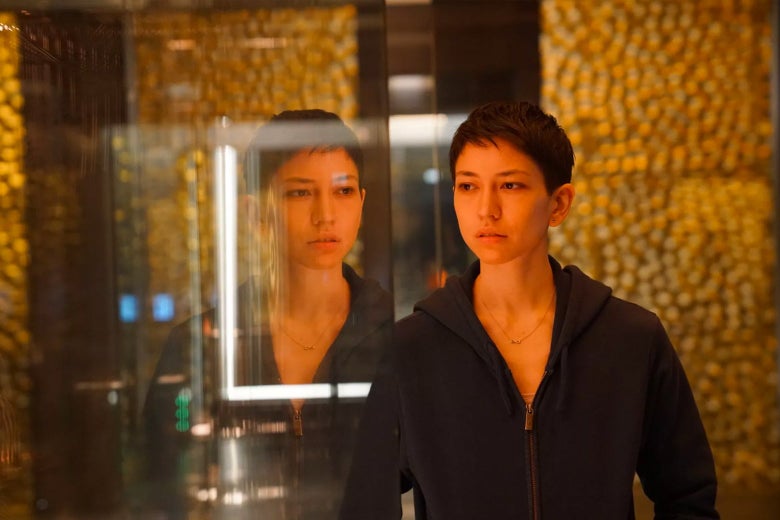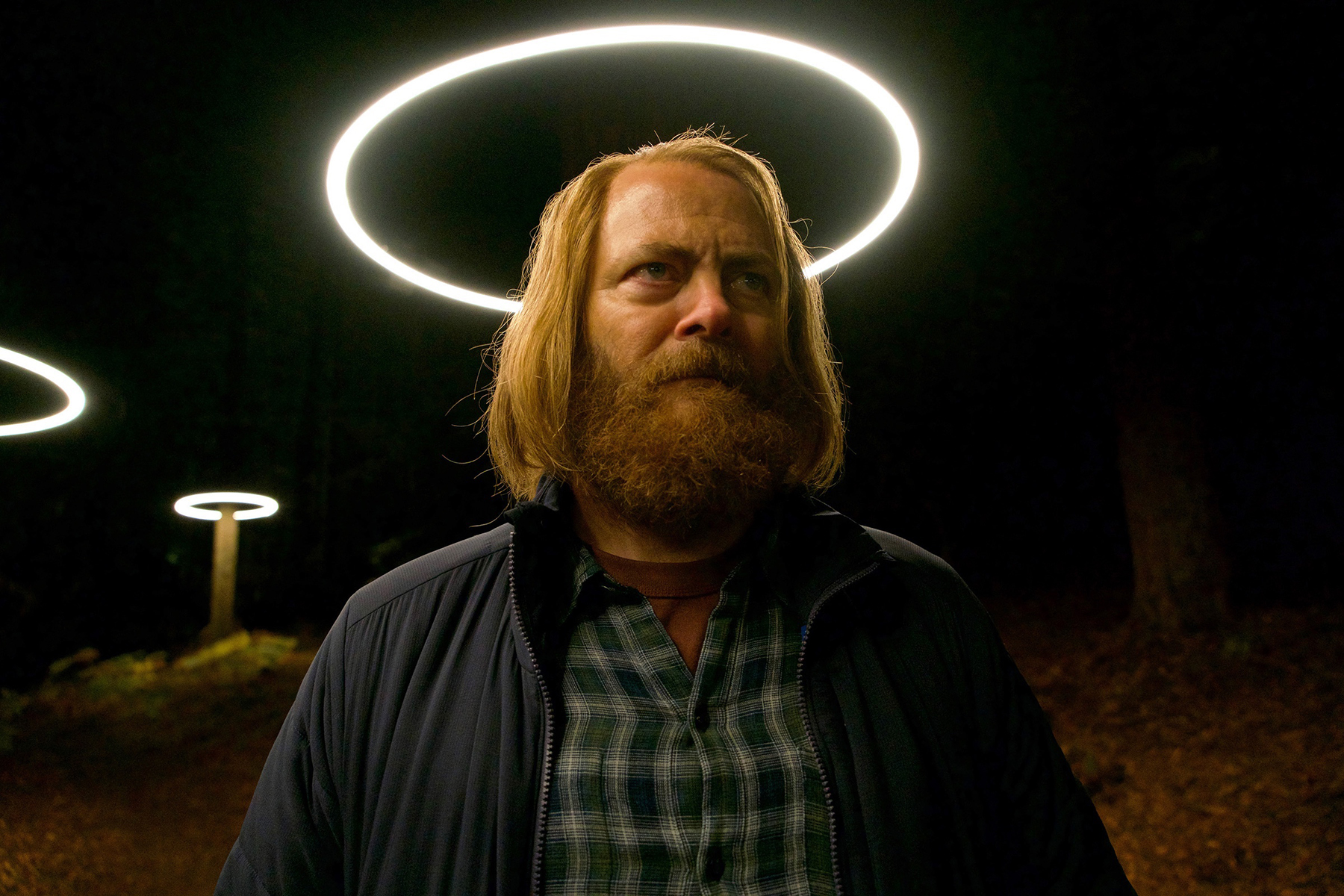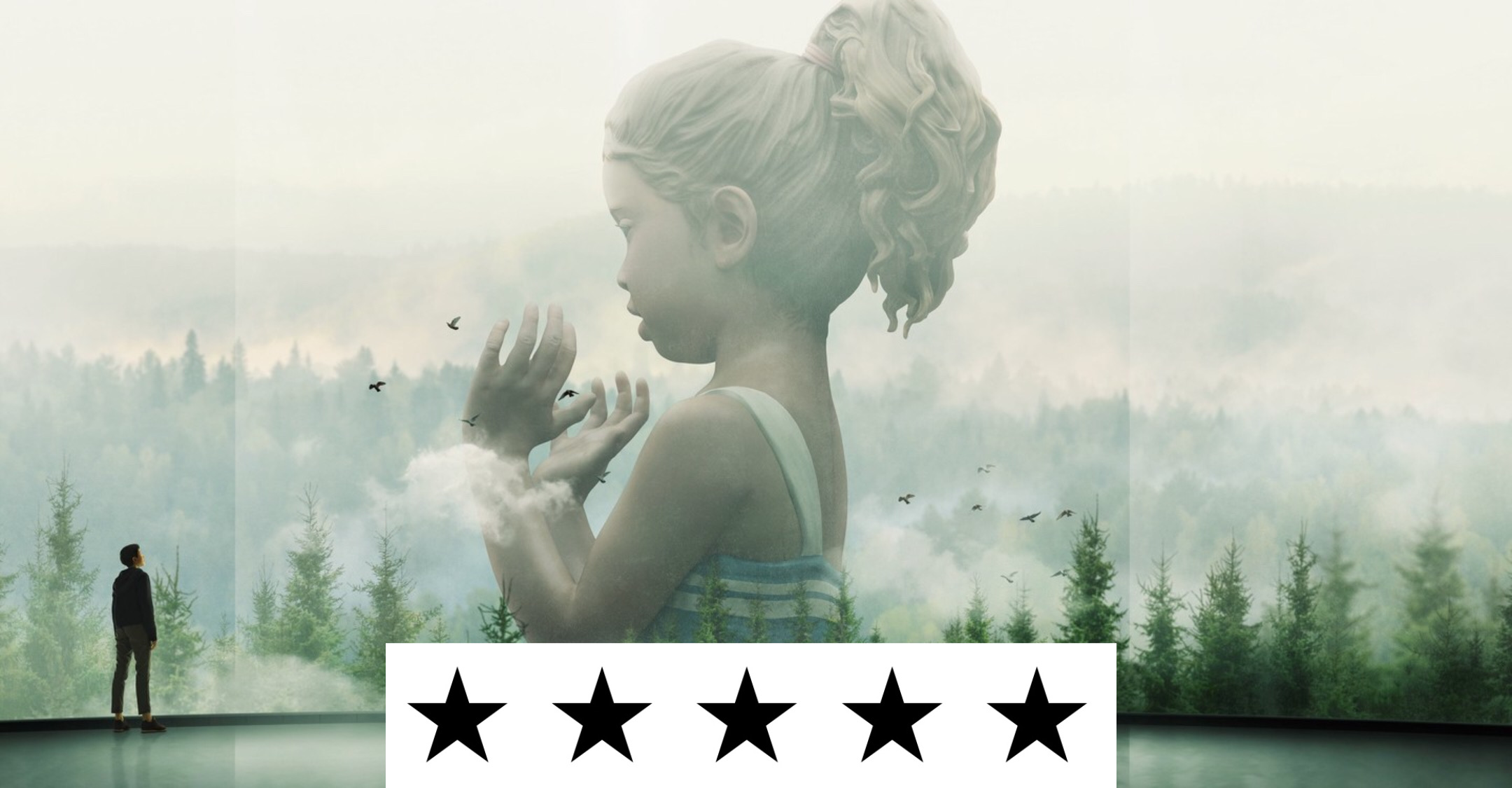
As long as science fiction has been created for the silver screen, artists have used the genre as a means of exploring existentialist concepts too scary for the human mind to process. “What does it mean to be alive?” “Do living beings have free will?” “Is the universe predetermined, as we live out a laundry list that was decided long before we could take our first steps?” Auteur filmmakers such as Stanley Kubrick, Andrei Tarkovsky, Denis Villeneuve, and Terry Gilliam have explored existentialism masterfully through science-fiction storytelling, and just as it seems the extent of originality in this convoluted genre has been reached, in comes Alex Garland.
Garland is an English writer and filmmaker, responsible for the screenplays for the films “28 Days Later”, “Sunshine”, and “Dredd”. It was 2014 when he released his directorial debut with “Ex Machina”, a film exploring the relationship between mankind and artificial intelligence. It was released to critical and commercial acclaim and garnered a nomination for Garland’s script at the 88th Academy Awards. It also won Best Visual Effects, an unheard-of success for an independent feature with a budget of only $15 million. His next film “Annihilation”, released in 2018, follows a group of scientists who enter a mysterious quarantined zone of mutating plants and animals caused by an alien presence.
Despite being a critical hit, the theatrical release was sabotaged by David Ellison of Skydance, calling it “too intellectual” and “too complicated”, demanding changes to make it more appealing to a wider audience. Producer Scott Rudin had final cut say, and refused, with the film remaining in its intended form. The incessant drama and a shift in leadership at Paramount caused the film to be sold internationally to Netflix, capsizing the release. Alex Garland was incredibly irritated with the handling of his previous work, and in turn, switched his prospects to Hulu to create a miniseries. Not only did his past as a successful author lend incredibly well to long-form storytelling, but Garland would have complete creative control to make whatever his heart desired.

“Devs” follows Lily Chan, a software engineer for a quantum computing company run by Forest, becomes entangled in the mysterious death of her boyfriend on the first day of his new job at Devs. This is, without a doubt in my mind, the best miniseries released this century so far. It is so incredibly rare to find something this thought-provoking and uniquely presented, and I genuinely can’t say I’ve seen a television series with this level of cinematic production in years.
The way information is selectively revealed creates a multi-layered emotional gut-punch, as the morbid and melancholy DNA of the story is unraveled strand by strand. There are single philosophical concepts this show provokes that are more interesting than entire feature films. Alex Garland’s script features phenomenal characters with depth and personality, and in keeping with the surrealist, dreamlike quality the series has, many of the characters speak with an unusual softness. There are hundreds of small details and mannerisms that align with the unearthly presentation that create an indescribable emotional response. When I’ve seen almost 4,000 films, and then a series evokes emotions I’ve never experienced before, it is quite a surprise.
Besides the writing and directing from Garland, the biggest selling points of this show would be its visuals, musical score, and performances. Rob Hardy’s cinematography is absolutely extraordinary, with a gorgeous color palette of oranges, greens, and golds. The show was shot on the Sony CineAlta Venice 6K with Panavision C-Series and E-Series anamorphic lenses, with a digital intermediate finish of 4K, and the resolution shows. Every shot glimmers with detail and meticulous bursts of color, and the incorporation of computer-generated imagery and practical effects is seamless. The production design is also mindblowing, and the sets are all breathtaking to behold.

The original music, composed by Geoff Barrow and Ben Salisbury of Portishead, and The Insects, is one of the most distinct musical scores for a film or television show I’ve seen in years. It is so viscerally rejective of traditional television scores that it entirely takes on being a character of the series. There is a chaotic amalgam of gorgeous woodwind-fused riffs with experimental electronic music and chopped-and-screwed white noise. Almost just as much as the music is its own character is how sparingly it is used. There are so many extensive conversational scenes and moments that are even more effective by simply the lack of a non-diegetic composition. The music is an emotional rollercoaster, with sonic moments that are terrifying, euphoric, and melancholic, laced with pre-recorded soft rock and macabre classical pieces. It perfectly encapsulates the show, and that’s what every good musical score should do.
The acting is what sells the story perfectly, and every single actor gives the best performance of their respective careers. Sonoya Mizuno as Lily is simply sensational. My favorite form of acting is facial expression, and it takes a truly brilliant actor to make every emotion their character is feeling with just a look on their face. She is the backbone and soul of the show, and she carries the series. Nick Offerman as Forest is just an astonishing performance, and the moral complexity and past of his character are so intriguing and equally heart-wrenching. He commands the screen every time he’s in the foreground, and he manages to be intimidating, empathetic, and humorous. Alison Pill as Katie, the chief designer of Devs, is wonderful as-per-usual, and Zach Grenier as Kenton is as entertaining as he is menacing, and Stephen McKinley Henderson as Stewart is an absolute blast to watch.
There is such an incredibly deep passion for filmmaking and storytelling on display in every frame of the 409-minute runtime, and it plays like a 7-hour film. Once you start the first of the eight episodes, it becomes incredibly difficult to not binge-watch the entire series in one sitting. It is so rare to find a piece of media I can genuinely say has accomplished everything it set out to achieve artistically, but this is one of the most resounding examples of that. As someone who spends most of my days critiquing and deconstructing every problem with films, this is an airtight story with virtually no flaws to be found. This is a slow-paced and articulately provoking series with little to no action and very little to be found in the way of conventional structure, but if you appreciate a series that chooses to be thought-provoking over following traditional science fiction, this is the show for you. This is currently my favorite piece of media to be released this year, and it seems difficult to see a scenario where that changes.
“DEVS” is available to watch now on FX on HULU. Start a 7-day free trial here.


Like!! Really appreciate you sharing this blog post.Really thank you! Keep writing.